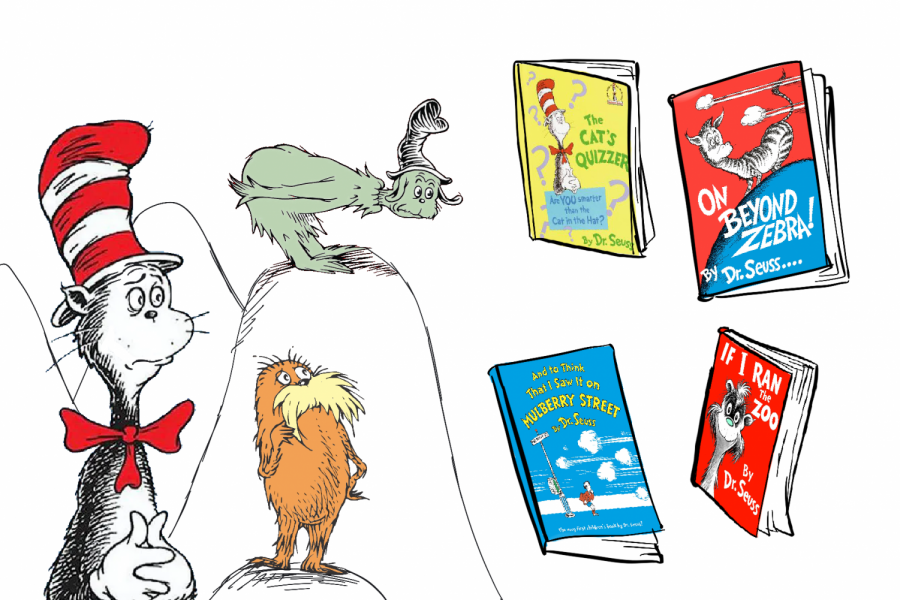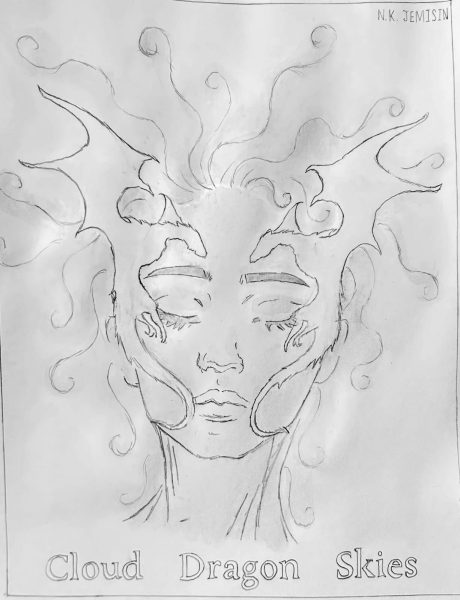Dr. Seuss Pulled from Publishing
Is the Cat is Out of the Hat?
Dr. Seuss’s books have been an integral part of many people’s childhoods. Books such as The Cat in The Hat, Green Eggs and Ham, and How the Grinch Stole Christmas are some of his more popular works. His unique rhyming style, combined with his creative world-building, gave kids something to laugh at and enjoy. In early March, six of the many books Seuss (official name Theodor Suess Geisel) wrote were criticized and pulled from publishing due to the racist portrayal of some characters. The books in question were If I Ran the Zoo, And to Think That I Saw It on Mulberry Street, On Beyond Zebra!, McElligot’s Pool, Scrambled Eggs Super!, and The Cat’s Quizzer.
Some examples of why the books were banned are as follows: In And to Think That I Saw It on Mulberry Street, a person of Asian descent is shown wearing an Oriental hat and eating from a bowl with chopsticks.
If I Ran the Zoo had a drawing of two African men wearing grass skirts with their hair tied up.
In a press release on March 2nd of this year, the Dr. Seuss Enterprise said, “Today, on Dr. Seuss’s Birthday, Dr. Seuss Enterprises celebrates reading and also our mission of supporting all children and families with messages of hope, inspiration, inclusion, and friendship…These books portray people in ways that are hurtful and wrong. Ceasing sales of these books is only part of our commitment and our broader plan to ensure Dr. Seuss Enterprises’s catalog represents and supports all communities and families.”
In an interview with the New York Times, Seuss’s step-daughter, Lark Grey Dimond-Cates, said “there wasn’t a racist bone in that man’s body,” and “he was so acutely aware of the world around him and cared so much.’’
She also said that it was a “wise decision” to pull the books from publication.
But contrary to what his step-daughter said, a certain political cartoon Seuss created during World War II sticks out. It was called “Waiting for the Signal From Home” and showed many characters with squinted eyes (presumed to be Japanese-Americans) walking along the West Coast to pick up TNT from a place called “Honorable 5th Column.” This drawing added to the idea that Japanese-Americans were dangerous to the United States after Pearl Harbor.
Though Seuss’s books have been met with controversy both during his life and after his death, people still love his books. His rhyming and drawings have been a staple of many childhoods. In 2020, Seuss Enterprises reported revenue of around $33 million from book sales. He was also listed by Forbes as the second-highest paid deceased celebrity in 2020. This sounds impressive, but one must not forget the racial history associated with his work.




